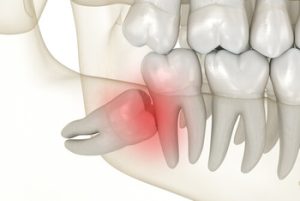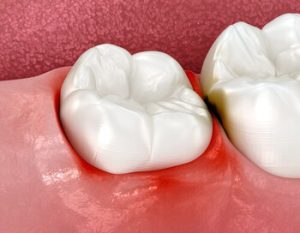Many people are unaware that wisdom teeth can remain hidden for years before causing problems. For some, these molars come through without trouble, but for many, they lead to discomfort, overcrowding, or infection. Wisdom teeth removal is a common procedure in Australia, frequently done to avoid long-term oral health concerns. If you’re experiencing pain or have been advised to monitor your development, it’s important to understand the next steps. One of the most common concerns surrounding this treatment is the cost. This guide explores the wisdom teeth removal cost, what the process involves, and how to ensure a smooth and safe recovery.
What Are Wisdom Teeth and Why Do They Need to Be Removed?
Wisdom teeth, also known as third molars, typically appear at the back of the mouth during late adolescence or early adulthood. Though they can be harmless for some, in many cases, they create problems due to a lack of space or improper positioning. Here’s why dentists may recommend removing them.
Crowding of Other Teeth
When wisdom teeth grow in, they often push against existing molars. This pressure can cause nearby teeth to shift out of place, especially if there is already limited room in the jaw. Removing them early can prevent misalignment and the need for orthodontic work later.
Crowding may also lead to discomfort during everyday activities like eating or brushing. If left untreated, the result could be a change in your bite or the positioning of neighbouring teeth. Dental problems linked to shifting teeth may require further corrective treatments in future. Wisdom teeth grow in tight spaces and can press hard against adjacent teeth. A general dentist will often recommend removal early to avoid long-term spacing issues.
Impacted Wisdom Tooth

These teeth can lead to inflamed gums and infection around the tooth. A surgical extraction is usually needed when impaction occurs below the gum line or in the bone. This condition is a common reason patients undergo wisdom tooth extraction. If the impacted tooth is pushing sideways, it may damage surrounding structures, including the jawbone. Early intervention through wisdom tooth removal surgery prevents future complications.
Risk of Infection
Partially erupted wisdom teeth create small openings in the gum tissue where bacteria can enter. This increases the risk of gum infection or inflammation. Regular brushing may not reach the area effectively, making these teeth harder to keep clean.
Infections caused by impacted teeth can lead to serious oral health issues. Surgical wisdom procedures are often performed to clear infection and remove the source of irritation. If bacteria spread from the site, it can affect other teeth and nearby tissue. Proper dental care is essential to avoid recurring inflammation. Wisdom teeth surgery helps prevent chronic infections in hard-to-reach areas.
Tooth Decay and Damage
Even when wisdom teeth grow in completely, reaching them with a toothbrush or floss isn’t always easy. This limited access increases their chances of developing decay or other dental issues. They can also damage the enamel of adjacent teeth, especially if they are angled improperly.
Decay is more likely if plaque builds up where your brush cannot reach. Food particles that linger around the wisdom teeth may contribute to cavity formation. Tooth removal becomes necessary when decay causes irreversible harm. Wisdom teeth extracted in the early stages prevent pain and preserve other teeth. If left untreated, decay may spread and compromise oral health entirely.
Gum Disease Development
The presence of extra molars can lead to poor gum health if they interfere with regular cleaning. Inflamed gums and pockets around the wisdom teeth may signal early gum disease. Removing the problematic teeth can reduce long-term risks and protect oral health.
If gum disease progresses, it may lead to tooth loss or bone damage. Complex wisdom teeth removal is often advised to protect the health of the surrounding gums. The extra effort needed to clean around third molars increases the chances of gum tissue breakdown. By removing wisdom teeth, you reduce the likelihood of gum recession. This helps preserve the structure supporting your other teeth.
What Is the Wisdom Teeth Removal Cost?
Wisdom teeth removal in Australia can cost approximately $225 for a simple case. When surgery is needed, the starting price usually increases to about $350, depending on individual circumstances. A detailed consultation with your dentist will provide the most accurate pricing for your treatment plan.
Why Do Wisdom Teeth Removal Prices Vary So Much?
Here are the key considerations that determine how much you may pay.
Number of Teeth Being Removed
If you need all four wisdom teeth removed, the overall cost will naturally be higher than for a single extraction. Some dentists offer package pricing for multiple wisdom teeth, which can help manage expenses. A personalised quote is usually provided after the consultation.
Removing four wisdom teeth in one session is more efficient for healing and scheduling. However, it may involve a longer procedure and deeper sedation. Many patients prefer removing all molars at once to avoid repeated recovery periods. Wisdom tooth extraction costs may vary significantly depending on how many need to be taken out. The teeth removal cost is also influenced by the condition of each molar.
Complexity of the Extraction

Procedures like surgical wisdom tooth removal are priced higher due to longer duration and resource use. Deeply buried teeth may need advanced surgical procedures and bone removal. A non impacted wisdom tooth is typically easier and quicker to remove. However, curved or deeply rooted molars will add time and complexity. Surgical procedures for difficult cases are best handled by an experienced provider.
Use of Anaesthesia
Some patients undergo local anaesthetic for the procedure, while others require general anaesthesia or sedation. The choice depends on patient comfort, anxiety levels, and surgical needs. General anaesthesia will significantly increase the total cost.
Using general anaesthesia may require additional safety equipment. It is commonly chosen for lengthy teeth surgery involving multiple extractions. Some people opt for sedation when having all their wisdom teeth removed in one appointment. The cost of wisdom teeth procedures under sedation is generally higher than those using local anaesthetic alone. Patients should also consider recovery time when choosing an anaesthesia option.
Public vs Private Services
Public dental services can provide tooth extraction at a reduced rate, but waiting lists can be long. Private dental centres offer shorter wait times and more flexible scheduling but come with higher out of pocket expenses. Your eligibility and urgency will help determine which option suits you best.
Many choose private care to access advanced dental treatments faster. Public options are available through public dental services but may involve delays. Some regions offer free or subsidised extractions under public funding schemes. Private health insurance may also affect your eligibility for certain providers. Comparing both systems ensures you make the most informed decision for your care.
Type of Dental Clinic
The location and setup of the dental clinic also impact pricing. Practices with modern equipment and additional staff may charge more for their services.
Some clinics include in-house imaging, which may streamline the wisdom tooth removal procedure. Clinics experienced in dental procedures involving surgical extractions can often reduce appointment time. Choosing a well-equipped provider helps ensure patient comfort and safety.
Your Dental Insurance Coverage
Private health insurance may cover part of your wisdom teeth removal, depending on your policy and waiting periods. It’s important to check the details of your dental insurance before scheduling the procedure. Understanding your health insurance policy can help minimise unexpected bills.
Plans vary in how much they cover for tooth extraction or oral surgery. Some insurance providers require pre-approval before removal surgery is scheduled. Checking coverage early prevents surprises after treatment. If your plan covers major dental procedures, wisdom tooth extraction may be included. You may still have out-of-pocket expenses, depending on your specific benefits.
What Happens During a Wisdom Teeth Removal Appointment?
The process of removing wisdom teeth is carefully planned and tailored to the patient’s needs. Here’s what typically happens during the course of treatment.
Initial Consultation
Your dentist will assess your condition during the initial visit. X-rays are often taken to view the position of the wisdom teeth and their relation to nerves, bone, and adjacent teeth. This step allows your provider to determine whether a surgical extraction is needed.
They may also assess how the wisdom teeth are affecting surrounding tissues or if they are contributing to ongoing symptoms.
Anaesthesia and Preparation
On the day of the procedure, your dentist will explain what to expect and ensure you’re comfortable. Local anaesthetic is usually administered to numb the area, though general anaesthesia may be used for more complex procedures or patient preference. Safety checks are carried out continuously during the procedure to track your condition. To ensure you’re fully prepared, your medical background will be reviewed so the sedation method aligns with your overall health.
Tooth Removal
The method used to remove a wisdom tooth depends on its position and condition. For deeper or angled molars, the dentist may need to open the gum and carefully access the area underneath. In some cases, the tooth is separated into smaller parts to allow safer and more controlled removal. Care is taken to minimise the impact on adjacent teeth and reduce trauma to the surrounding bone.
Cleaning the Extraction Site
After removing the tooth, the dentist will clean the tooth extraction site to eliminate debris and reduce the risk of infection. In cases where stitches are needed, dissolvable sutures are often used. Gauze may be applied to control bleeding and assist clotting.
Sterile techniques are used throughout this step to ensure the site remains clean and promotes effective healing.
Recovery Monitoring
Before discharge, your dental team will provide detailed post-operative instructions. These include how to manage swelling, discomfort, and when to return for follow-up. You’ll also be advised on when to resume normal activities and how to care for the area as it heals.
If complications arise, such as prolonged bleeding or difficulty opening your mouth, your dentist will provide guidance on when to seek additional care.
What’s the Right Way to Heal After Wisdom Teeth Surgery?
Proper care after having your wisdom teeth extracted plays a big role in healing. These steps help prevent complications and support a smooth recovery.
Manage Swelling and Discomfort

Some patients experience discomfort if the clot is dislodged, which can be avoided by resting. Your dentist may advise limiting movement in the first 48 hours after tooth removal. Any discomfort typically peaks within the first few days and gradually subsides. Following a rest schedule reduces inflammation and prevents delays in healing. Each person’s pain tolerance varies, so communicate openly with your provider.
Eat Soft Foods
After surgery, stick to soft meals like mashed potatoes, yoghurt, or blended soups. Avoid hot or cold foods in the first few days, as sensitivity may increase discomfort. Chew away from the surgical area to avoid disturbing the healing site.
Eating soft foods reduces strain on the gums and helps the clot remain intact. Foods like scrambled eggs, smoothies, and porridge are ideal during recovery. Avoid nuts, chips, or anything with sharp edges. Many people also find it helpful to keep meals small and frequent. Your team may provide a full list of food recommendations to support healing.
Avoid Disturbing the Area
It’s important not to touch or probe the area with your tongue or fingers. The act of sucking through a straw can loosen the clot from the extraction area, potentially causing dry socket and delaying recovery. Take care when brushing near the extraction site to avoid irritation.
Disturbing the site too early can lead to unnecessary bleeding or delay tissue healing. Patients should avoid spitting forcefully or rinsing vigorously for the first 24 hours. Gentle care allows the tissue fibres to start sealing the area. If stitches are present, avoid chewing on that side until cleared by your dentist. A little patience goes a long way toward faster recovery.
Keep the Area Clean
Saltwater rinses are often recommended the day after surgery to gently clean the mouth. This helps reduce bacteria and promote healing. Avoid commercial mouthwash, as the alcohol content may irritate healing gum tissue.
Good dental hygiene during recovery prevents plaque from building up near the surgical site. Use a soft toothbrush and avoid brushing the affected area too closely. Avoid using oral care products with strong flavours or chemicals. Clean hands should always be used if applying medication or checking the site. This step is vital for maintaining oral health during the recovery period.
Watch for Signs of Infection
Monitor for symptoms like persistent swelling, pus, or foul taste, which may suggest a gum infection. If you develop a fever or experience worsening pain, contact your dental clinic immediately. Early intervention helps avoid complications and speeds up recovery.
Infections around a tooth extraction site may occur if food debris gets trapped beneath the gum flap. Any unusual discharge or prolonged discomfort should be reported. Your dentist may prescribe antibiotics if an infection develops. Gum disease can also emerge if aftercare is not followed closely. Recognising warning signs quickly reduces the chance of needing further dental procedures.
Follow All Post-Operative Advice
Follow the specific instructions provided by your dentist. This includes medication schedules, cleaning routines, and activity restrictions. Staying consistent with care leads to faster healing and fewer setbacks.
Patients are often given written recovery guidelines for reference. If anything feels unusual or uncomfortable, contact your provider immediately. Skipping follow-up appointments may delay proper healing. In some cases, oral health can worsen if care steps are ignored. Consistent communication with your dental team helps you stay on track.
Find Out If Wisdom Teeth Removal Is Right for You
Wisdom teeth removal is a common dental procedure designed to prevent problems before they worsen. From impacted wisdom teeth to overcrowding and decay, there are many reasons this treatment may be necessary. While the wisdom teeth removal cost can vary based on factors like complexity, clinic type, and insurance coverage, the value of the procedure lies in the long-term benefits it provides. Choosing to have wisdom teeth extracted under professional care helps protect your oral health, reduce future risks, and preserve nearby teeth from damage. To find out what your options are or to receive a tailored quote, contact our dental clinic today on (02) 9159 6237 and book your consultation.
Note: Any surgical or invasive procedure carries risks. Before proceeding, you should seek a second opinion from an appropriately qualified health practitioner.
References
https://www.colgate.com/en-in/oral-health/wisdom-teeth/wisdom-tooth-extraction
https://www.healthdirect.gov.au/surgery/removing-wisdom-teeth

